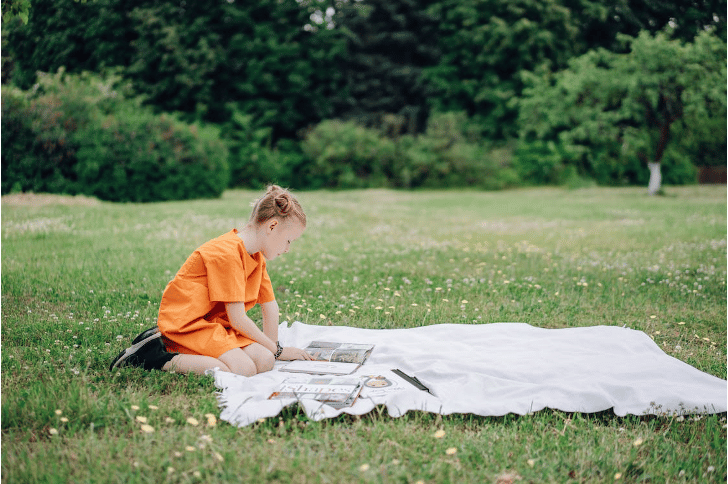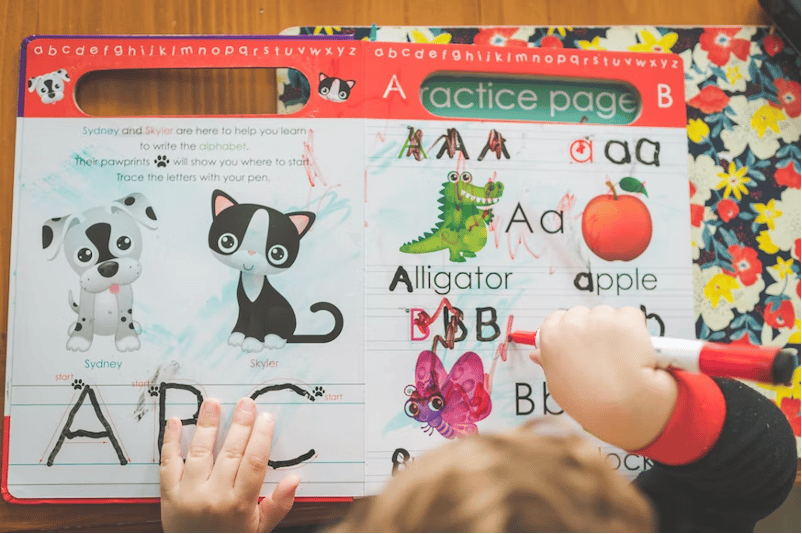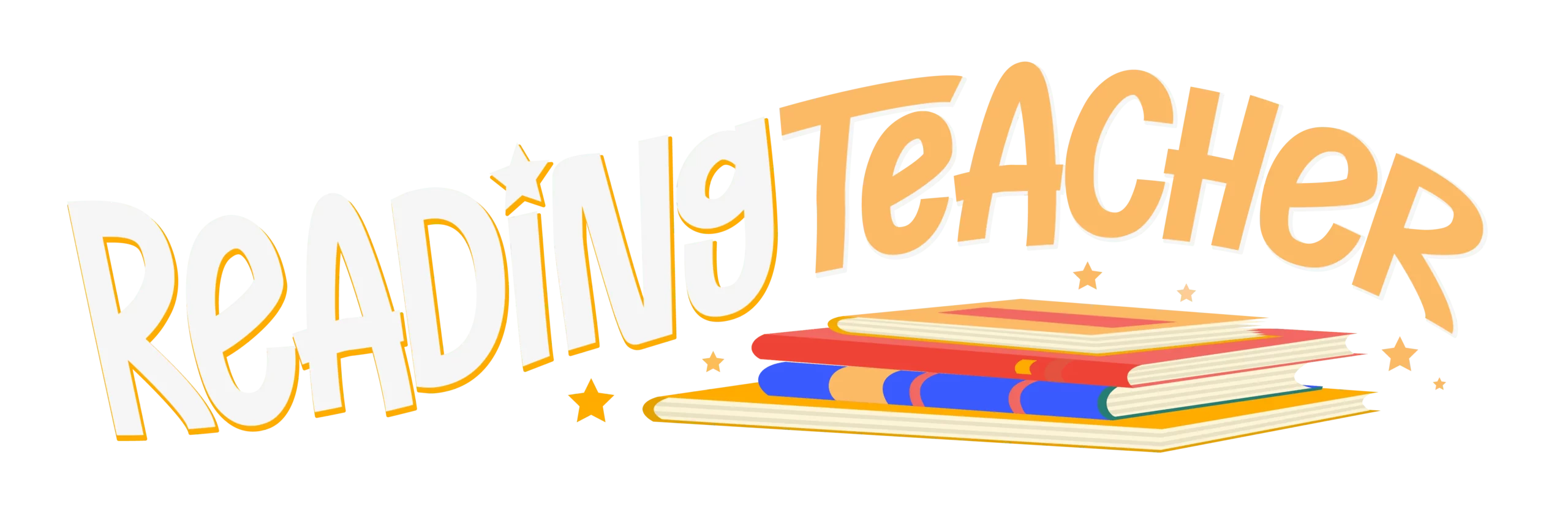What Are Early Literacy Skills

What counts as an early reader?
If you’re pals with a preschooler, you probably know one! Early readers, also called early emergent readers, are in the earliest stage of their reading journeys. They’re learning about reading and writing before they’ve actually learned to read and write. Parents and educators can expect lots of scribbling, pointing at familiar sight words, and a growing interest in characters and objects in books.
Youngsters will develop their early literacy skills until around age four or five, when many start to receive formal literacy instruction at school. Until then, it’s important to understand the basics of early reading and ignite your child’s interest in the vast world of books, stories, and characters.
Let’s get to it! We’ll outline the basic early literacy skills and help you feel prepared for this foundational stage of literacy development.
What Are the Basic Early Literacy Skills
By the time your child is showing an active interest in books and an ability to draw and “write” (well, scribble) on their own, they’re in the classic stage of early literacy.
Whenever we’re talking about stages of literacy development, it’s important to remember that children learn to read at different rates! Your child might start to read confidently in kindergarten, first grade, third grade, or later. As long as they have a supportive adult and educator by their side, there is no “correct” or expected time to transition from an early reader to a fluent reader.
With this in mind, here are six basic early literacy skills most commonly identified by reading experts.
1. Print Motivation
This is a fancy way to describe a child’s early interest in books. The earlier you can encourage a child to engage with books, the better. Once they discover that listening to an adult read their favorite book is FUN, they’ll be more motivated to listen to and eventually read books on their own.

2. Print Awareness
Children have to be aware of words before they read them! This skill requires children to learn the basic “anatomy” of a book: its front and back covers, the first page, and how to read from left to right - and right side up!
Like any skill, print awareness grows with exposure to books. As you’re reading with your child, hold the book together and allow them to turn the pages. This familiarizes them with the look and feel of a traditional book.
3. Narrative Skills
If your child is fond of describing or retelling stories from books, they’re practicing their narrative skills, meaning that they’ve comprehended what they read. These skills often develop alongside print motivation: after all, the better we comprehend a story, the more likely we’ll finish it and pick up a new book.
To help build narrative skills, don’t limit the magic of storytelling to books alone: you can also encourage kids to talk about a silly story from their day, and take time throughout the week to talk about repeated events or objects.
By helping children understand the connections between people, places, and feelings, they’ll discover that stories exist everywhere: both in and outside of books.

4. Vocabulary
If you’ve ever caught your four year-old copying your adult-level vocabulary, you’re familiar with this early reading skill!
Sure, they’ll learn new vocab by simply spending time with their favorite grown-ups. But how can adults actively support early childhood vocab development?
In addition to reading books together, experts recommend that parents and educators speak to children in a conversational, positive tone. Giving commands and simple “yes”/”no” answers do not support the development of more nuanced, complex vocabulary.
5. Letter Knowledge
Any fluent reader knows that a word is made up of individual letters. But in our early reading days, this was a major breakthrough.
To develop this simple skill, we can’t just sing the Alphabet Song. Children should also be encouraged to look and talk about different letters in ABC books and “I Spy” games. It’s equally important for children to learn about shapes during the early reading stage, since letters are made up of circles, squares, and other basic forms.

6. Phonological Awareness
One of our favorite early reading skills at Reading Teacher is phonological awareness: the ability to hear and manipulate sounds in spoken language. Children will start to develop this skill simply by hearing YOU, a supportive adult, read books to them.
Over time, early readers will learn to recognize when words rhyme and share the same starting or ending sounds. When reading a book aloud to an early reader, you can focus on this skill by “zooming in” on a new word, repeating it, and asking them to break the syllables apart by clapping: for example, “Oc/to/ber” or “Su/per/man” each require three claps.
It will take time, motivation, and patience to move from these early literacy skills to fluent reading. Yet as any adult reader can attest, this early investment is well worth a lifetime supply of books - and the joy they bring. Happy early reading!
Take-Aways:
- Early reading skills, often used interchangeably with emergent reading skills, are developed from birth until a child gains the tools to actually read and write. These skills include:
- Print motivation
- Print awareness
- Narrative skills
- Vocabulary
- Letter knowledge
- Phonological awareness
- These six skills are developed at home and/or in the classroom, through both regular exposure to books and in conversation with supportive adults.
Start Teaching Reading for Free Now!
Access Level 1’s four interactive stories and the accompanying supplemental resources to teach elementary students how to read. No credit card is needed. Join the 42,635 teachers and students using our reading program.
